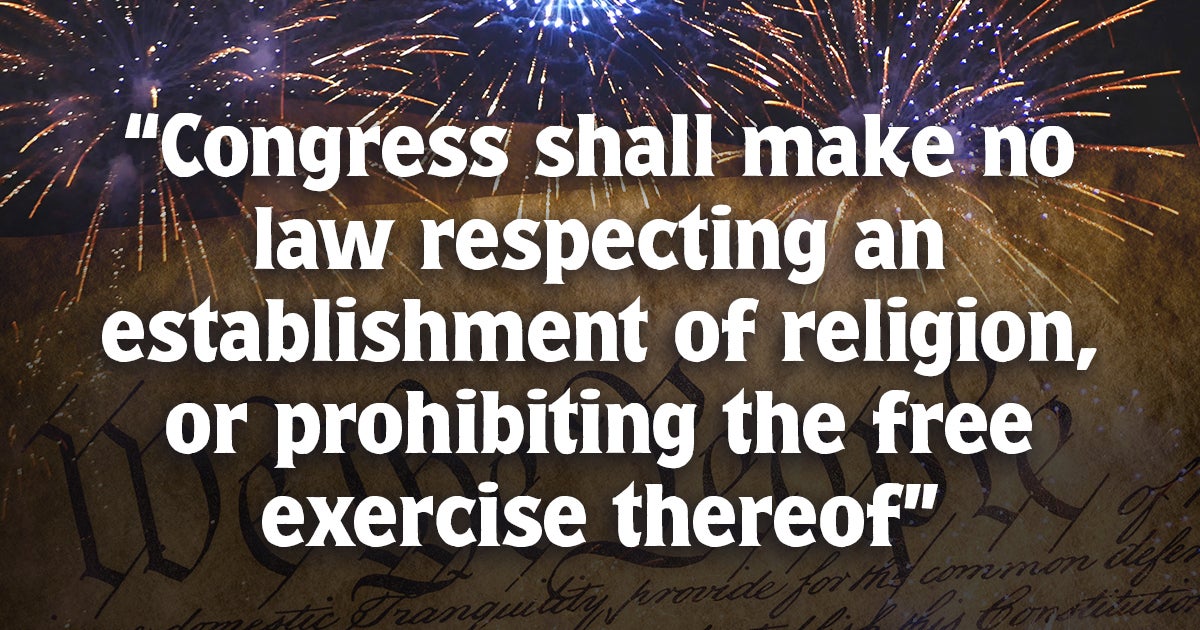
Logan Tantibanchachai – 5 minutes
Today is the Fourth of July—a day to commemorate the adoption of the Declaration of Independence in 1776.
Most people know Fourth of July as a day to celebrate America, eat hot dogs, and enjoy fireworks. As we enjoy with our family and friends the blessing of living in freedom, let’s not forget that America’s independence is closely tied to the most important and sacred liberty of all: religious liberty.
Religious freedom has always been a core part of America, from its founding to the present. Even before declaring our independence, faith and the free exercise of religion were part of our history, heritage and traditions. That’s why, in the Bill of Rights, religious freedom is the very first right listed in the First Amendment. Our Founders understood that religious freedom is the foundation of a free society. It’s the first freedom from which all other liberties flow.
Simply put, without religious liberty, no nation can truly be free.
In fact, Thomas Jefferson, the third President of the United States, has only three accomplishments on his tombstone: the author of the Declaration of American Independence, the founder of the University of Virginia, and the author of the Virginia Statute for Religious Freedom, which he wrote in 1786.
The Virginia Statute for Religious Freedom was a landmark law that shaped and inspired constitutional religious liberty protections. Scholars credit it as the foundation for the First Amendment to the Constitution as we know it today.
Jefferson said, “by these, as testimonials that I have lived, I wish to be remembered.” Why would someone so accomplished be so specific as to include religious freedom on his tombstone?
Because Jefferson and virtually all of the Founders understood that American independence could not be separated from religious freedom. America’s Independence was centered around the idea that our rights come from God—not from government or a monarch. As a result, the freedom to be able to follow our conscience and freely live out our religious beliefs without government interference or coercion was deeply intertwined with American independence. That’s why as author of the Declaration of Independence, Jefferson wrote:
“We hold these truths to be self-evident, that all men are created equal, that they are endowed by their Creator with certain unalienable rights, that among these are Life, Liberty, and the pursuit of Happiness.”
Long before Jefferson penned the Declaration, the first settlers who established the American colonies came seeking religious freedom. These pioneers had a longing to live in liberty and establish a community where their families could worship according to their religious beliefs free of persecution. They sought to liberate themselves from the English crown largely because they were being taxed and forced to financially support the official state church, the Church of England.
Motivated by a desire to freely live out their faith, it’s no surprise that America’s Founders would make it clear in the Declaration of Independence that our rights and liberties come from God.
Here are just a few more examples of how faith and religion played a pivotal role for the Founders as they fought for independence:
As we face a barrage of assaults on the Constitution and our God-given freedoms in 2024, we should remember what Fourth of July is all about. As we see fireworks bursting in the sky this Fourth of July, let them be a symbol of remembrance of our homecoming to what America’s Founders intended: a nation where people of all faiths are free to live out their deeply held beliefs.